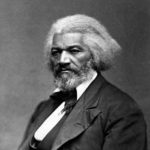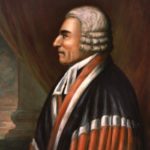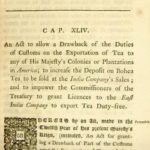This short video examines the Boston Tea Party of 1773 as the critical event which transformed political discussion about British imperial authority into an active source of controversy. By the early 1770’s, British and Americans thought differently about the extent of Parliament’s power to legislate for the American colonies. Professor Jack Rakove notes that British punishment of Massachusetts for its defiance of the Tea Act precluded a peaceful resolution of the political controversy.
What to the Slave is the Fourth of July?

Students are guided through a careful reading of Frederick Douglass’ greatest speech in which he both praises the founders and their principles, yet condemns the continued existence of slavery. The Constitution is presented as a “glorious liberty document” which, if properly interpreted, is completely anti-slavery. Douglass delivered this speech on July 5, 1852 at the height of the controversy over the Fugitive Slave law. The speech is generally considered his greatest and one of the greatest speeches of the 19th century. Before you read the speech you can follow links to learn more about Douglass’s life and the evolution of his thought in this period.
The Fugitive Slave Clause and the Constitution

This short video reviews the controversy over a fugitive slave clause. Northern states were opposed to including a fugitive slave clause in the Constitution. Professor John Kaminski tell the story of Quock Walker, an escaped slave, who was not returned to his owner in 1781 because a Massachusetts Supreme Court Justice ruled that slavery was unconstitutional based upon the MA Constitution. With the inclusion of a fugitive slave clause in the US Constitution, MA was no longer an asylum state.
